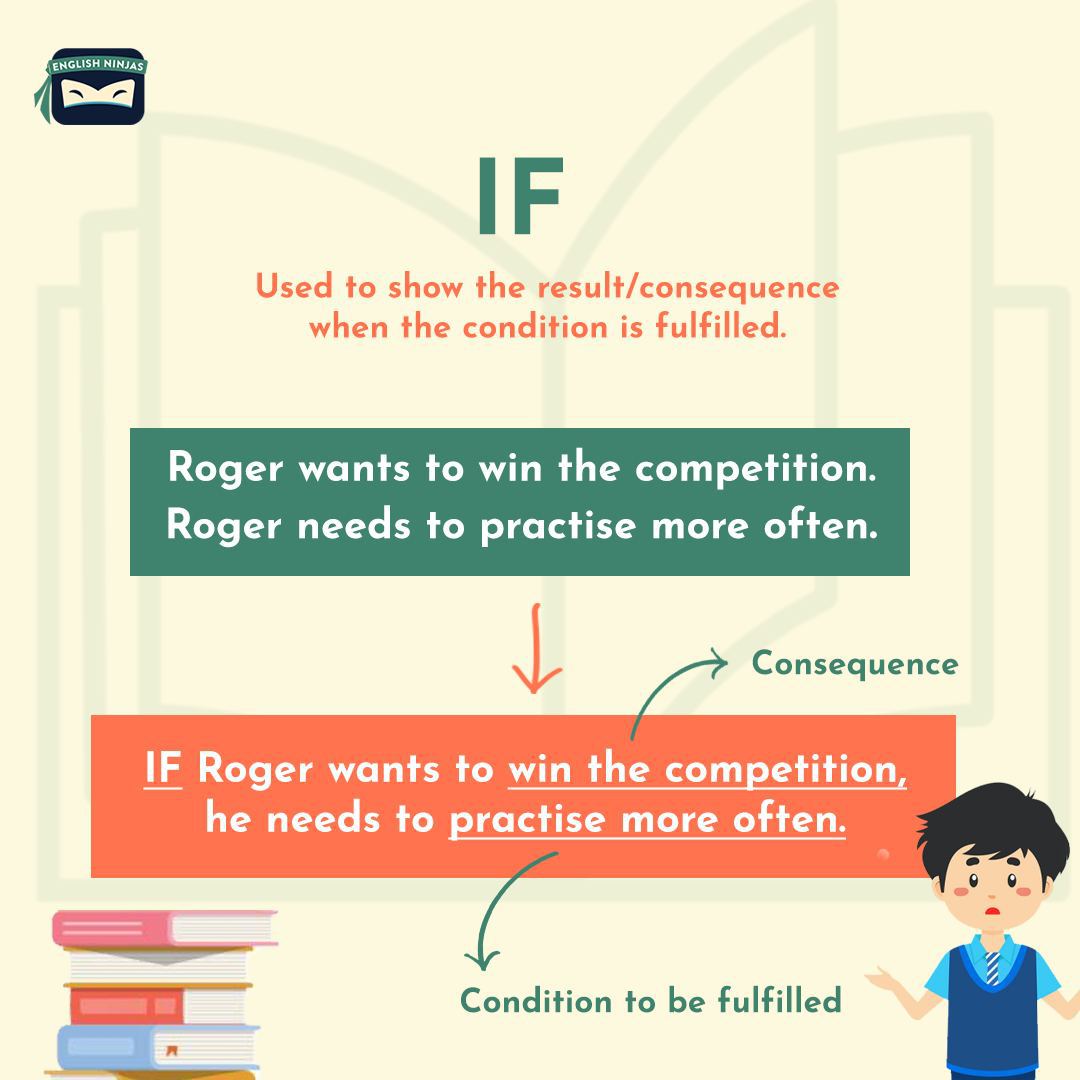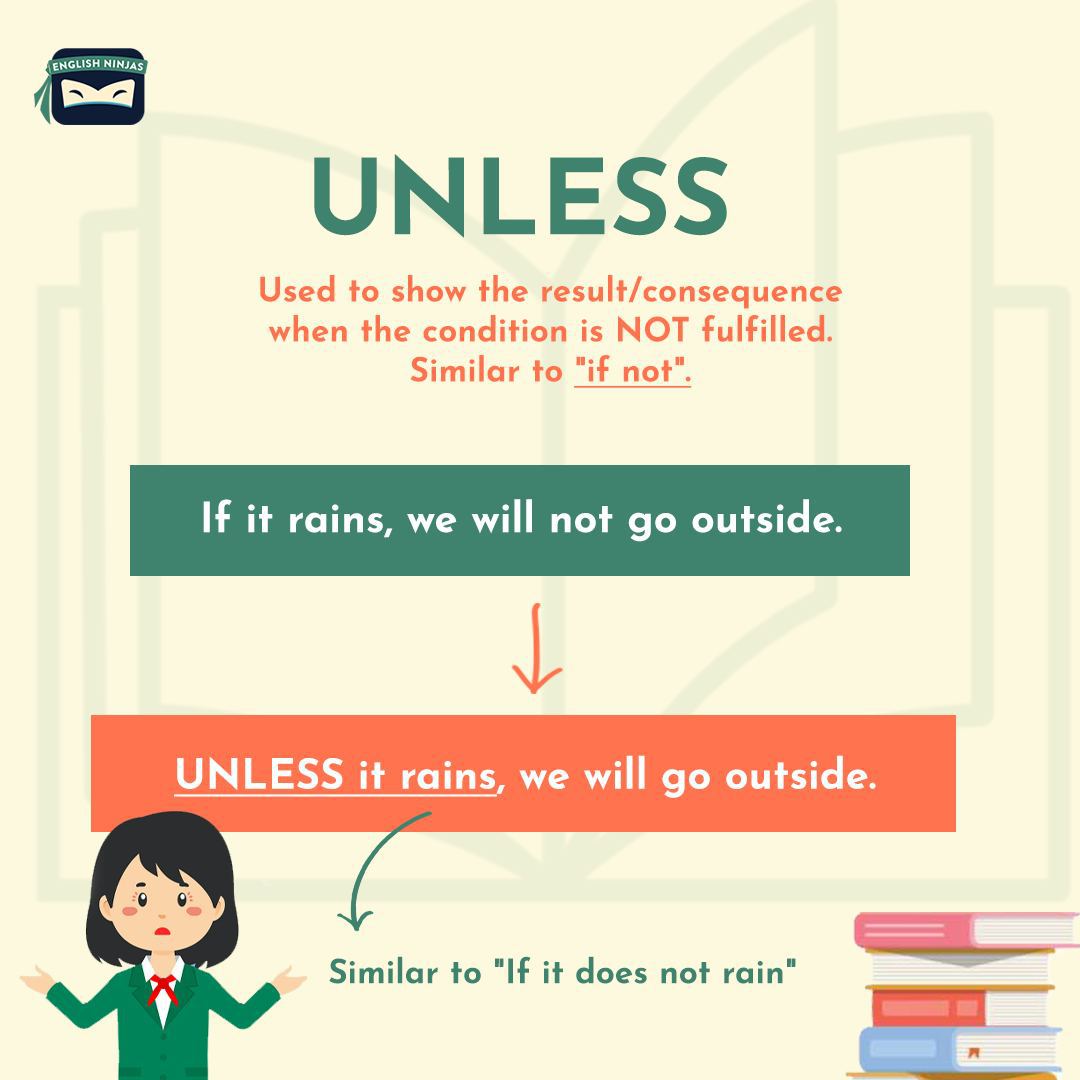When to Use 'If' and 'Unless'
👆 Suitable for Upper Primary students!
Both words present a condition (an action that must be fulfilled) and a consequence (of the action). However, they have very different meanings and implications!
Learn when to use If or Unless correctly with these clear steps!

[mark]"If" is used to show the result/ consequence when the condition is fulfilled.[/mark]
Here's another example!
The food will be cold. You should heat it up.
Step 1. Identify the condition and consequence.
Here, the condition is to heat up the food.
When the condition is fulfilled, the consequence is that the food will not be cold.
Step 2. Transform the sentence!
The food will not be cold IF you heat it up. OR
The food will be cold IF you do not heat it up.
NOTE. "If" can be used at the start of the sentence too!
IF you heat up the food, the food will not be cold.
IF you do not heat up the food, the food will be cold.

[mark]"Unless" is used to show the result/ consequence when the condition is NOT fulfilled.[/mark]
Here's another example!
You will not be able to master skateboarding. You have to keep practising.
Step 1. Identify the condition and consequence.
Here, the condition is to keep practising.
When the condition is NOT fulfilled, the consequence is that you will not be able to master skateboarding.
Step 2. Transform the sentence!
You will not be able to master skateboarding UNLESS you keep practising.
NOTE. "Unless" can be used at the start of the sentence too!
UNLESS you keep practising, you will not be able to master skateboarding.
Let's put what you've learnt to the test! Download the practice sheet below.
Download this worksheet.
Download the answer sheet. (Explanations included!)
Find out more about our:
Upcoming June Holiday Workshops
PSLE Mock Exam
Primary 5 Mock Exam
Hmm, there doesn't seem to be any pages available for you right now.
Perhaps you would like to check out some of our other sections in the menu above?
